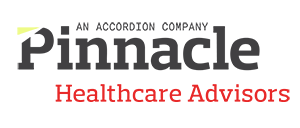 It is never too late to re-establish effective charge processes within your healthcare organization, and it is always valuable to re-evaluate existing charge workflows to improve your financial health. Every health system experiences unique charge capture concerns; nonetheless, adopting core fundamental practices can alleviate revenue leakage. While the suggestions may appear easy to implement and achieve, it is the long-term practice of these activities that contribute to the bottom line. Empower your health system to manage charge capture accuracy and circumvent charge integrity issues by:
It is never too late to re-establish effective charge processes within your healthcare organization, and it is always valuable to re-evaluate existing charge workflows to improve your financial health. Every health system experiences unique charge capture concerns; nonetheless, adopting core fundamental practices can alleviate revenue leakage. While the suggestions may appear easy to implement and achieve, it is the long-term practice of these activities that contribute to the bottom line. Empower your health system to manage charge capture accuracy and circumvent charge integrity issues by:
Defining Ownership and Expectations
- Agree on ownership amongst revenue-generating departments for capturing, reconciling, and reporting issues with charges
- Identify charging stakeholders for each service line
- Knowledge of charge processes and how to support charge generation and reconciliation
- Participation in ongoing discussions of charging workflow for their respective service lines and any integrated service lines
- Summarize daily and/or weekly expectations and time estimates to dedicate for charging stakeholders
- Require commitment to charge reconciliation strategy
- Correlate with productivity reporting (if applicable) and impact on department performance goals
Living Charge Master Document
- Decisions on charging workflows for each service line on how a charge will be generated (automated based on an activity or manual), what charge(s) will be generated and the estimated typical turnaround time for those charges to be dropped
- Record any changes in decisions and build updates for future reference
- Include all charge sources – manual, interface, host system, and export to files/third party
- Re-evaluation of scenarios that have not already been standardized to become part of the standard workflow or notate why caveat exists
Ongoing Partnership with Revenue Integrity
- Create and maintain a charge description master policy for any updates to the CDM
- Define a change request form, approvals for change, testing outcomes, impacts of the change and communication from the charge change
- Updates to living charge master documentation and communication to impacted charge stakeholders and any respective revenue cycle teams for retroactive changes
- Monitor changes for payer feedback and additional adjustments to the CDM
- Host recurring meetings with service lines to discuss open issues and any changes that may need to be made to the living charge master
- Include system support for any clinical workflow questions that may impact charge generation
- Monitor feedback from charge reconciliation identified issues and coordinate with clinical stakeholders within operations and/or system build team for issue identification and resolution
- Dedicate time to discussing upcoming quarterly and yearly changes to charges and services
- Involve compliance to ensure billing and payer regulations are met when needed
Audit and Educate
- Encourage inquiries. All too often, charge questions can feel intimidating – not knowing what can or cannot be charged or simply not knowing what CPT code to report. Commit to promoting collaborative educational sessions for a more conducive environment.
- Invest in auditing either internally or externally with a vendor to identify areas of opportunity; not just with charge capture but also accuracy of the documentation that supports what was performed, as well as coding or system build updates that may need to be modified
- Charge corrections, charge credits, and late charges are often overlooked. Stakeholders are familiar with how to generate a charge; however, it is just as important to understand how to correct a charge to support what was performed, creating addendum and knowing how to add a late charge or how to credit an incorrect charge. Outlining these workflows in documents and having them readily available for the stakeholders will reduce charge lags
- Introduce new or changed regulations that may impact charging workflows and how this will be released and maintained at your health system and provide education to internal staff as well as to clinical departments
Utilize Technology
- Build internal edits for known charging workflow issues when billing charges together that should not be or require modifiers
- Move or create edits further up in the lifecycle of revenue cycle to avoid charge or correction delays
- Implement additional edits, such as Revenue Guardian for Epic, to capture potential missing revenue
- Automate workflows or processes that team members are often repeating
- Create reports or dashboard components that allow for quick identification of problems or aging items
- Monitor clinical documentation and standardize templates from the outcomes of audits guiding necessary data points to be populated
- Participate in vendor programs and/or system reporting to highlight areas of strength or opportunities (e.g., Financial Pulse for Epic)
- Evaluate newer technology from artificial intelligence and system-released workflows (e.g., Epic suggested charging)
Continuing these charge integrity practices can offer substantial value within your health system. The most vital aspect of charge capture is the commitment from your team members to these daily tasks. If you are in need of in-depth charge request forms, implementation or enhancement of Revenue Guardian edits, or improvement to your charge reconciliation process, contact us at vmolares@pinnaclehca.com to explore how we can support you.



